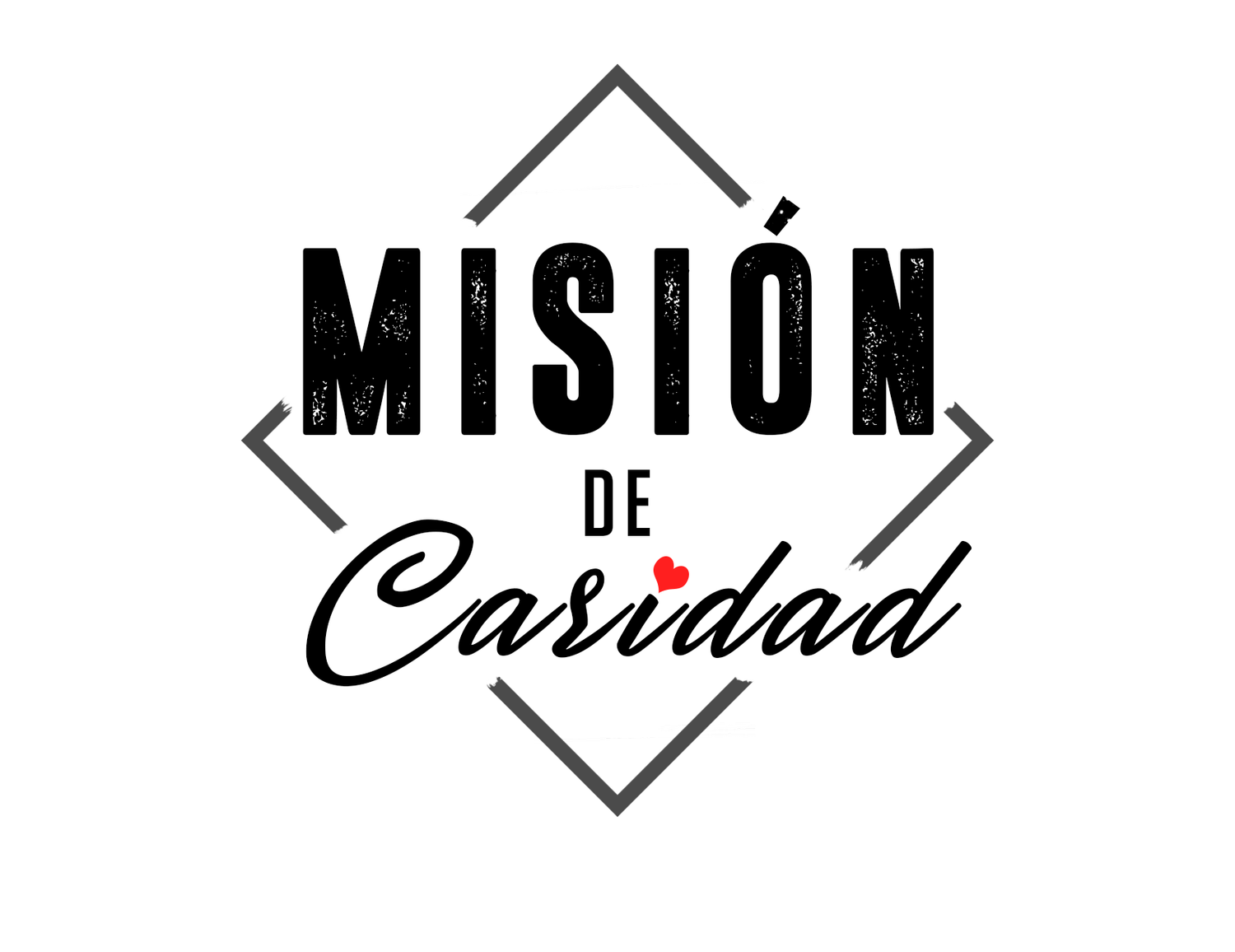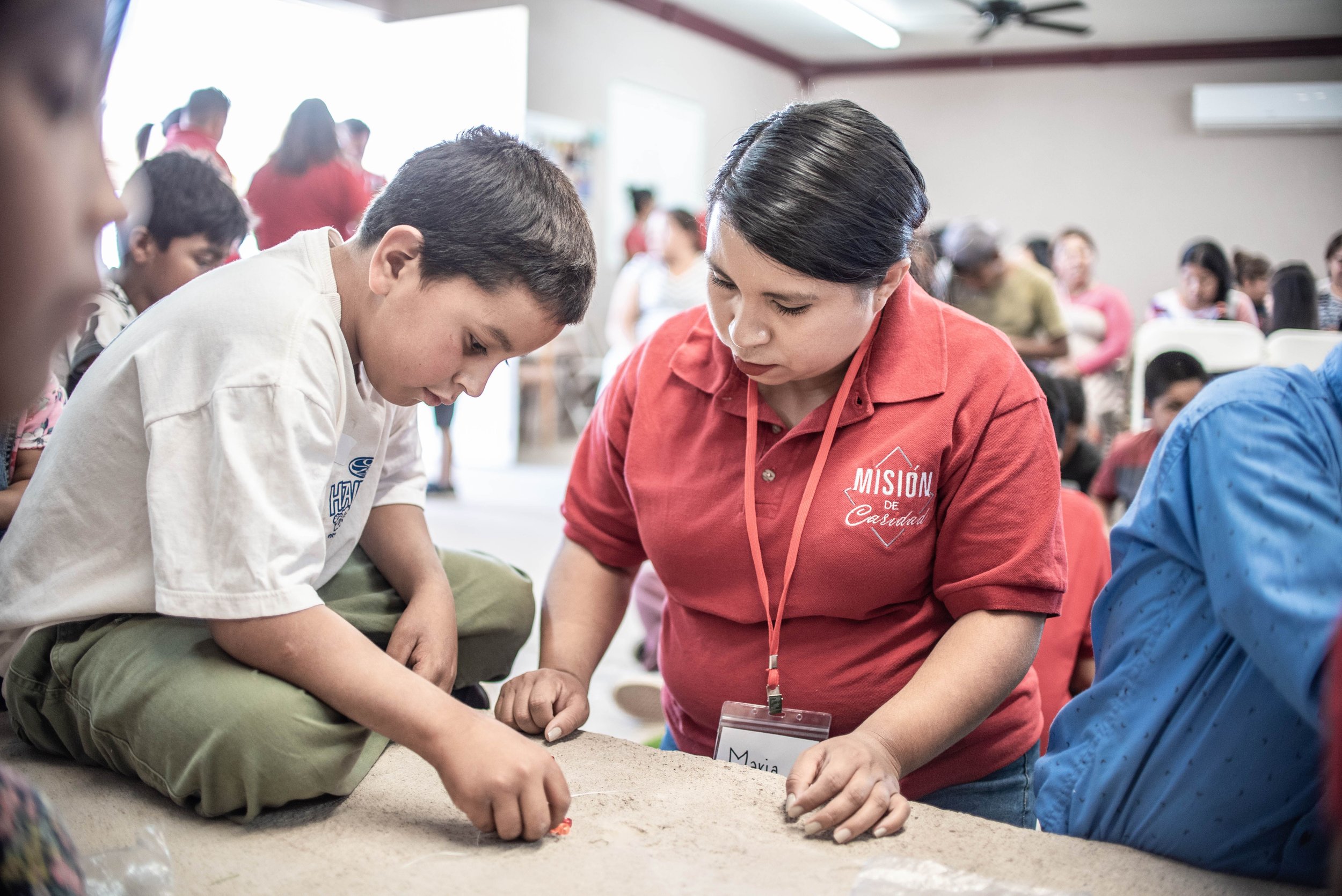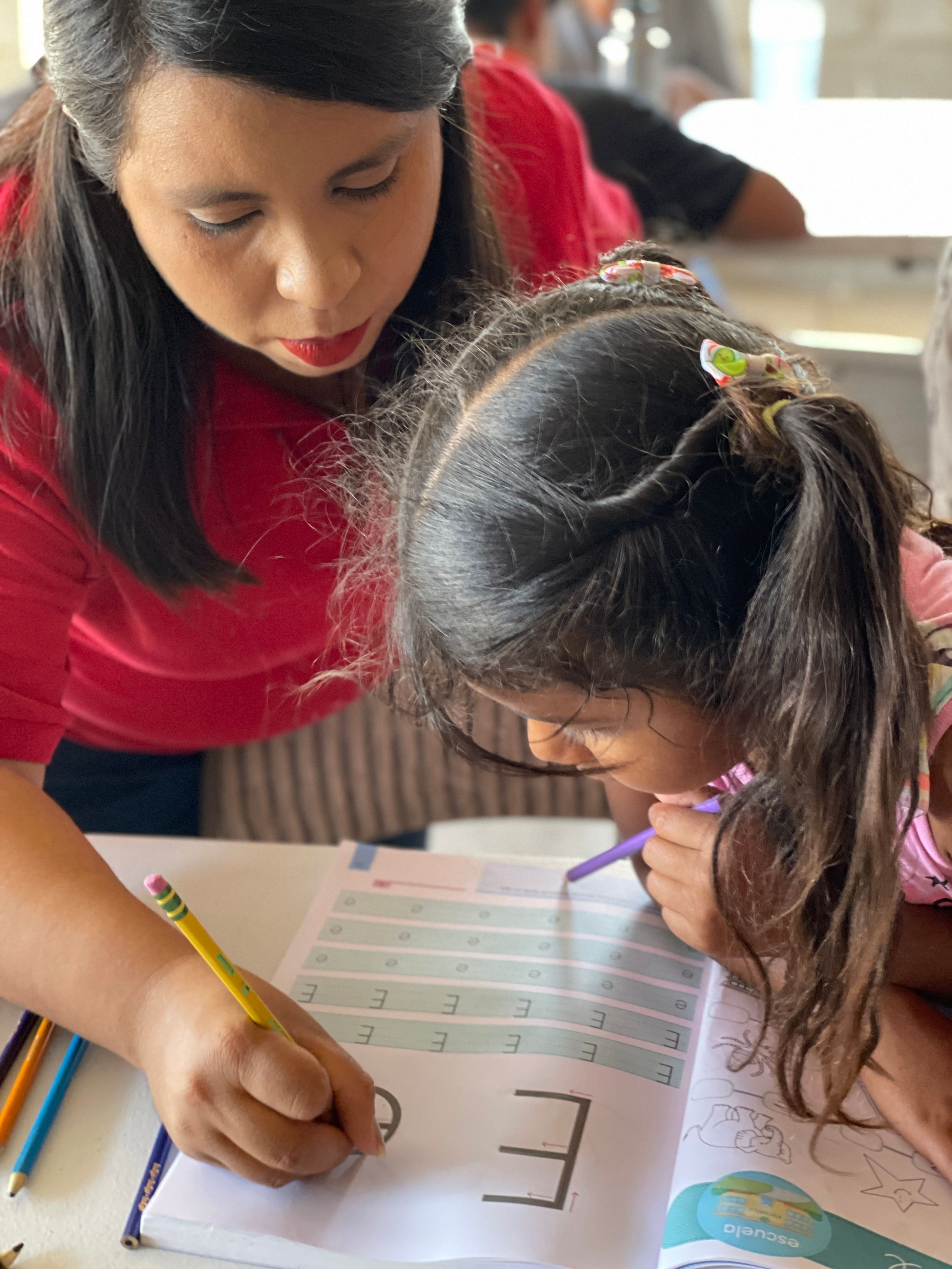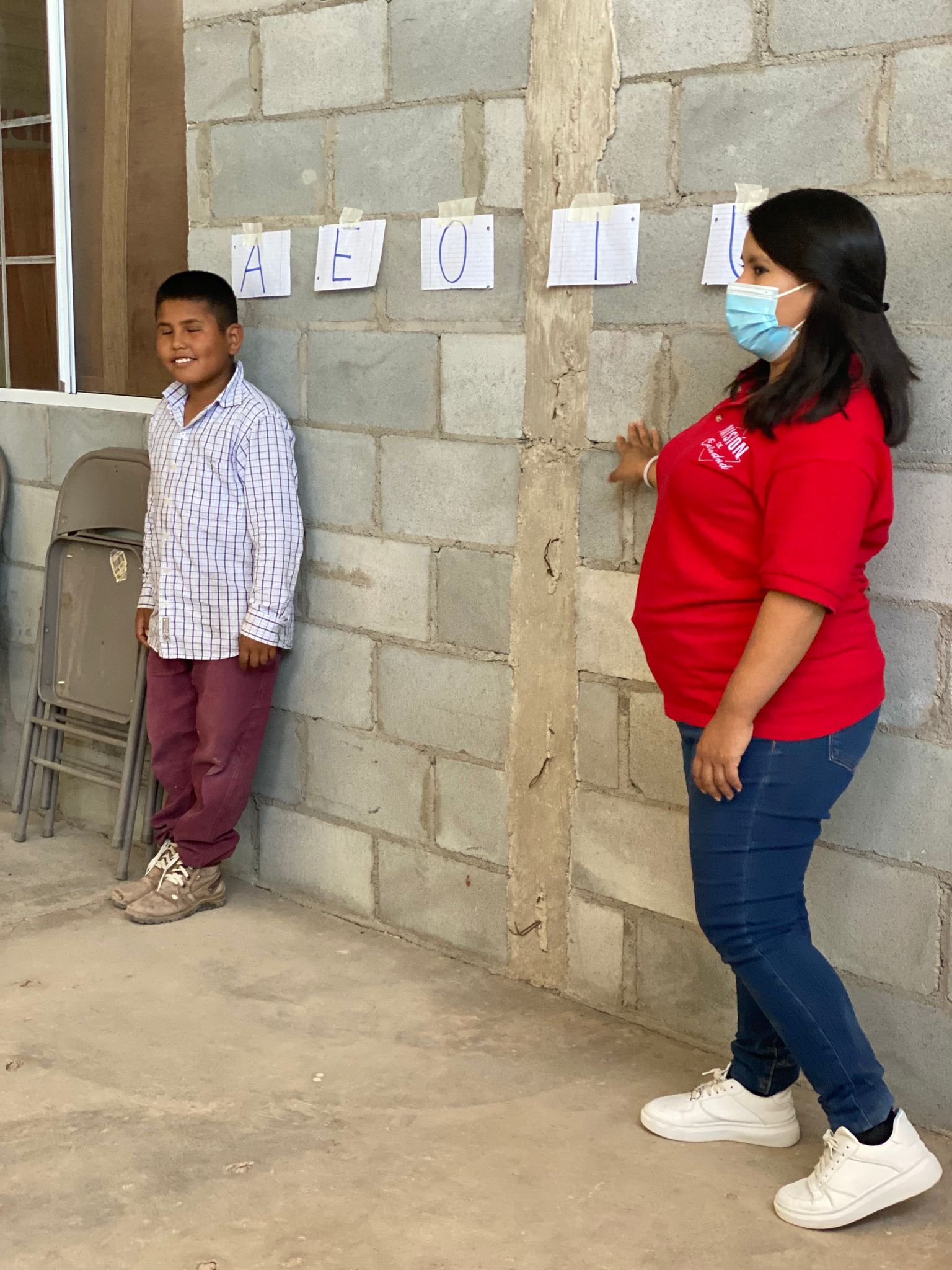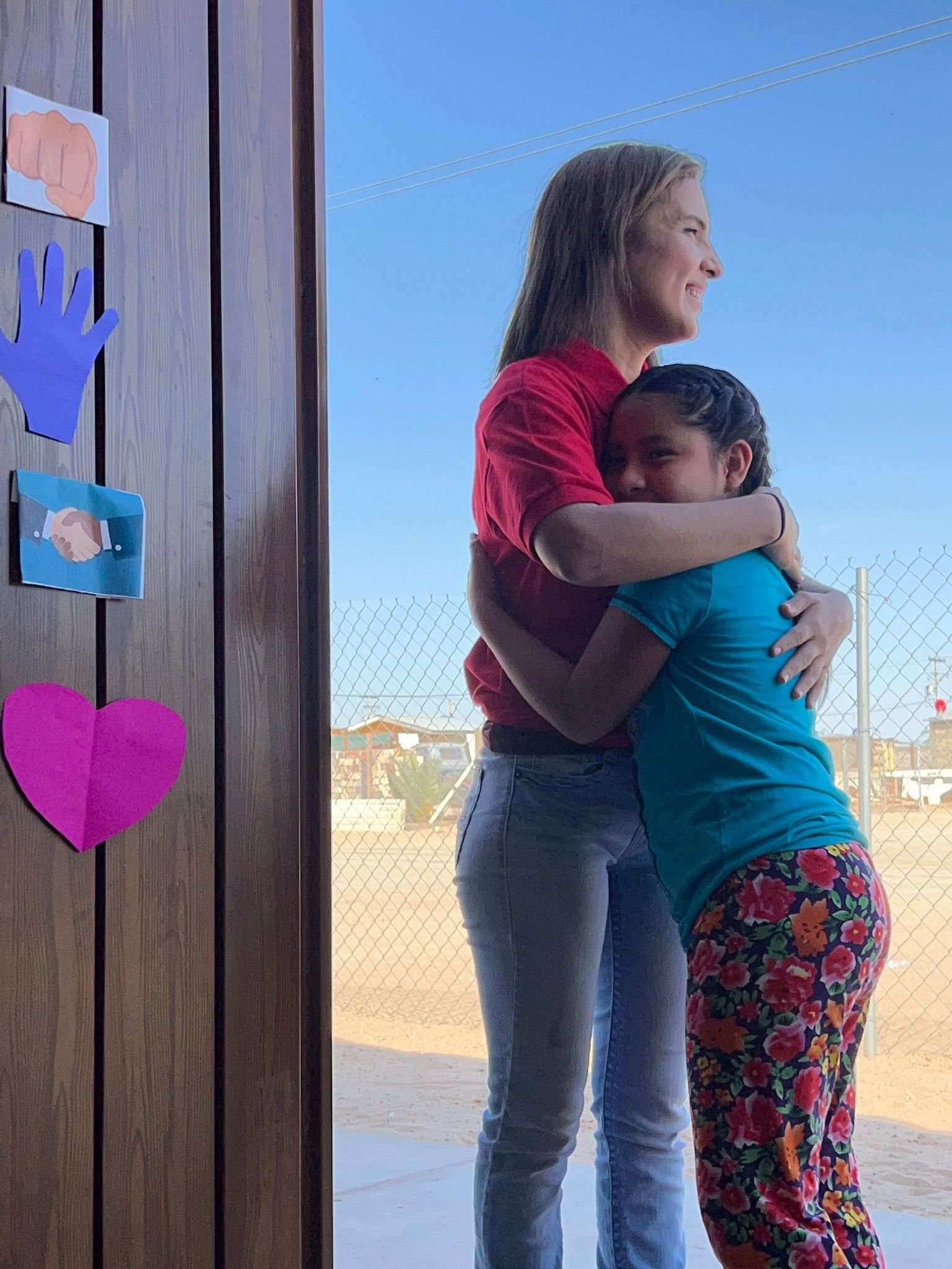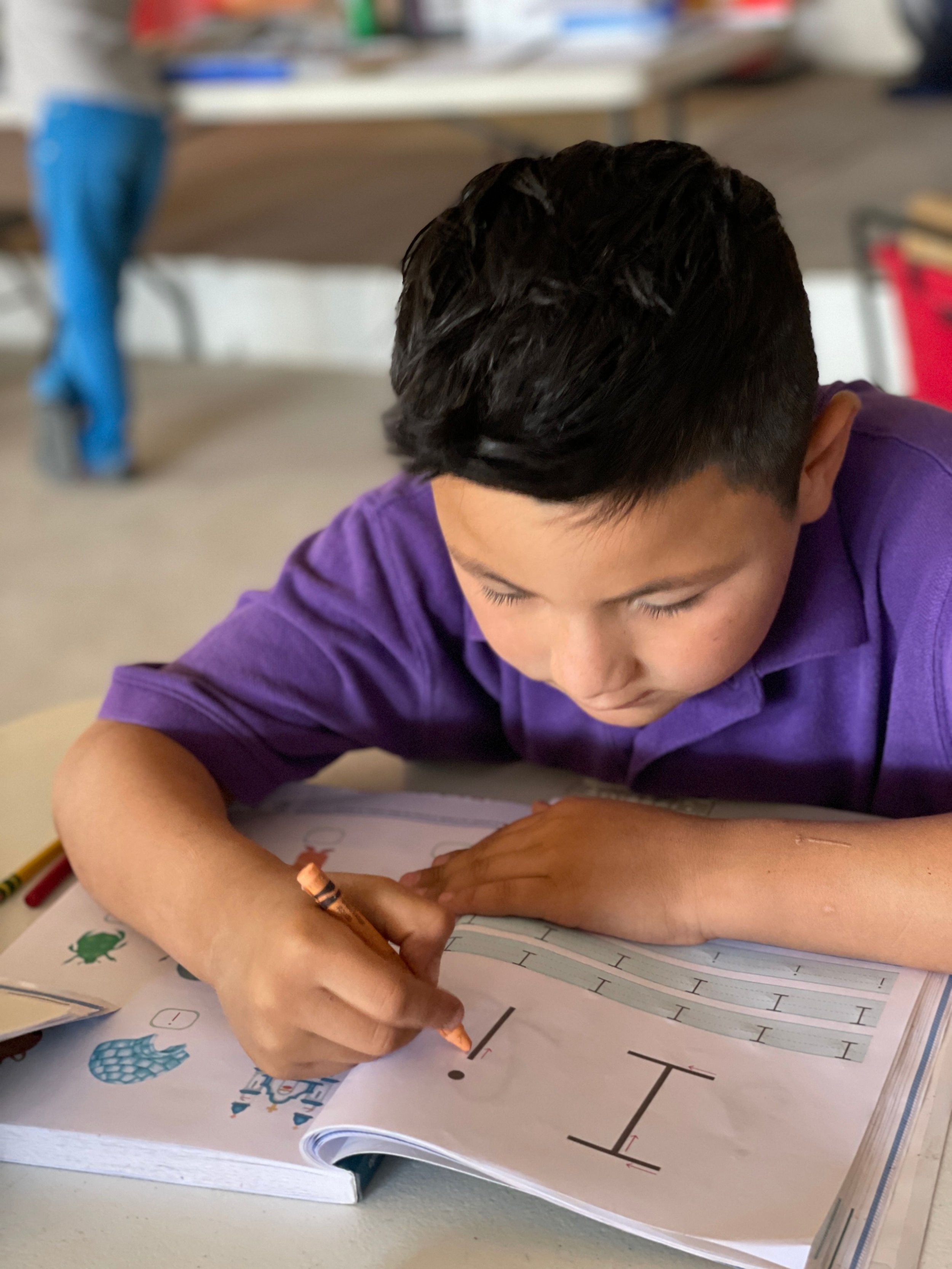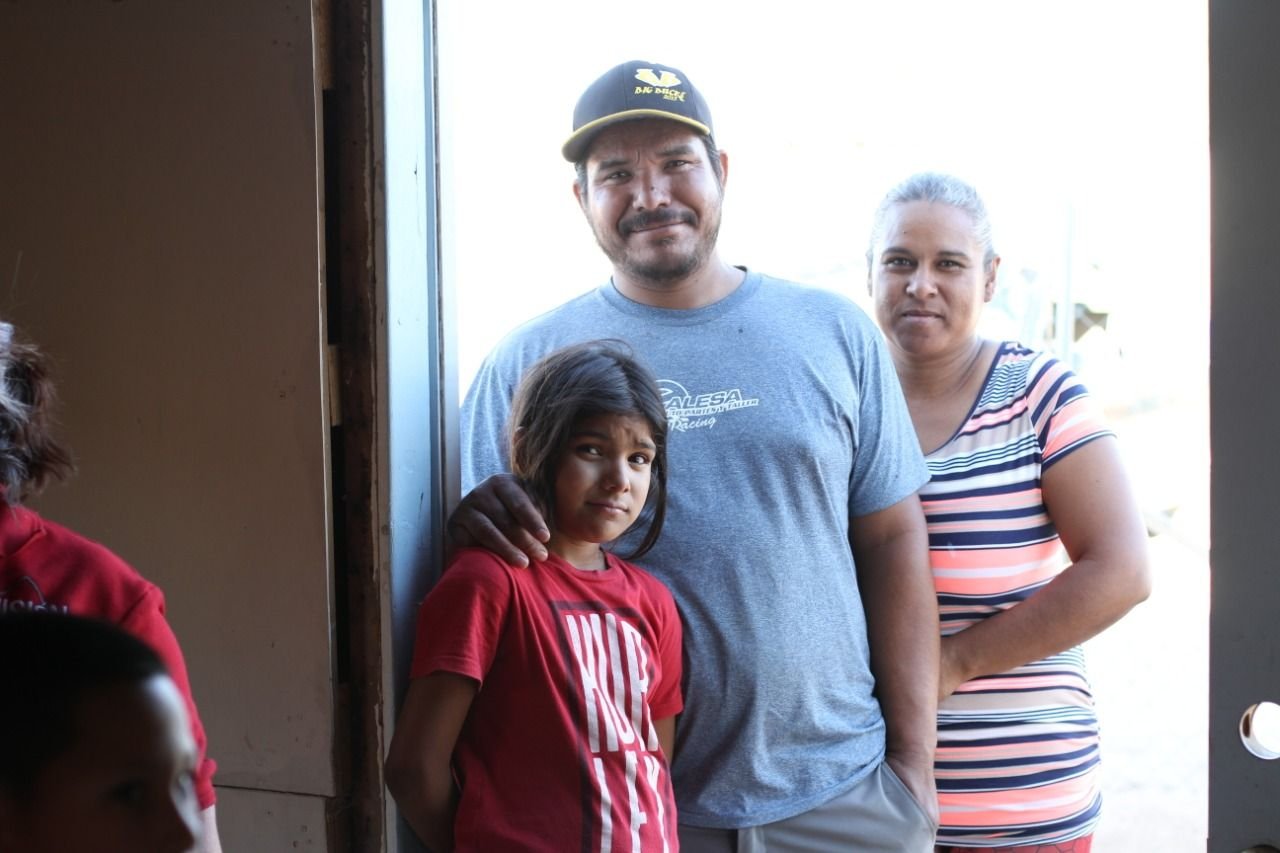Meet Maria - MdC's Education Director! (Part 1)
Maria Mesta is on a mission - to offer every child their right to an education and a brighter future! She recently joined the MdC Mexico team as Education Director, bringing her years of experience as a Montessori teacher to MdC’s Education Program. Recently, we caught up with her to hear more about her work, her passion for education, and her big dreams for the Besitos community.
Maria Mesta brings valuable experience as a mother, educator and native Mexican to Mision de Caridad’s education program.
Can you tell us a little about yourself?
My name is Maria Mesta. I was born in Durango, Mexico. When I was 8-years-old, my dad went to the USA and we migrated there as a family. I grew up in the USA - that’s where I learned English. When I was in high school, I moved back to Mexico and finished my high school there. I also went to university in Mexico to study accounting. I have been living in San Luis for 11 – 12 years, in the same community where MdC serves.
What is your favorite Mexican food?
Tacos, pozole, enchiladas. Basically I like all Mexican food except for nopales (cactus).
Is there anything else you would like us to know about you?
I am married and have a son. I like to spend time with my family in the park.
Maria engages a child during MdC’s most recent medical fair.
How did your interest in education begin?
Since I was a little girl it was one of the things I would roleplay with my cousin. I always wanted to be the teacher and they had to be the students! But when I was in university, I didn’t study to be a teacher. I studied to be an accountant. However, during the last year of my university studies, I saw an advertisement for a private pre-school teacher. I applied and they accepted me because they liked my English level. I had never been surrounded by young children so it was new for me. I didn’t even know the songs they usually sing, like Baby Shark, you know?
I worked there for 6 years and learned many methods and techniques like how to research, how to deal with issues in the classroom and with specific behaviours. I studied the Montessori method and learned to use various material and methods to make the children independent and help them learn while they are playing. That’s where I got my theoretical foundation.
Maria helps a young student work at her writing skills.
Maria uses fun and creative ways to teach reading and writing.
Students have one-on-one sessions and group classes. Teacher Andrea is pictured here.
Can you give us an overview of what the MdC education program looks like?
Our students range in age from 6 – 12 years of age. It’s a challenge to work with so many different ages and levels at the same time. We find some don’t know their vowels yet even at 8 or 9 which is is very sad because they cannot even write their names. To mange the learning levels, they are divided into 3 groups – basic, intermediate and advanced. In the basic group are the kids who don’t know any vowels and don’t have any writing skills. They are just copying what they see on the paper. In the intermediate group, children know their vowels and some of the alphabet, but they don’t have reading skills. In the advanced group, the kids know their alphabet and can read a little but need to improve their reading comprehension, fluency, and grammar.
Milka is learning her vowels. She is in the 2nd grade but is not currently attending school.
Children are arranged at tables by their levels – basic, intermediate, and advanced. At each table, they are working on a specific activity based on their level, maturity and needs.
Most of the children have not attended school, so it’s not just about teaching reading and writing, but there is the added challenge of teaching classroom behavior. So it’s not just like “Oh here we are- let’s just start reading and writing.” We have to start all the way from the beginning and they need to learn to follow rules, respect others and how to follow instructions. Also, because each child comes from a different environment, some are accustom to inappropriate language and many have low self-esteem. In their mind they are telling themselves, “I am not able to do this. I can’t. I am not smart.”
We know they are capable of learning. So, when a child tells me “I’m dumb”, it makes my heart sad. So we even have to work with their feelings.
What progress have you seen since the start of this program?
At first we had to do assessments to determine their level. Then, it was a slow process to get children accustomed to sitting, focusing and working At first, after about one hour of working, most of the children would say “We can’t keep working anymore”. But now, they can sit up to an hour and a half focusing on their books and their worksheets! Little-by-little they can stay seated and follow instructions for a longer time.
MdC’s program director, Lucy, practices reading vowels with a young student.
We can see teaching in this community is not just about academic needs, but also emotional and social needs. It’s really the whole person you are trying to help, isn’t it?
[Laughs] Yes, for sure is is not just teaching them to read and write, we also have to work through everything else. If we don’t work through their emotions and they think they are not capable of learning, we can spend a whole school year teaching a child something and we won’t get anywhere, because the child is not believing in themselves.
I learned how to be a teacher in a Montessori setting. There, each child works at their own pace. They are all learning at the same time, but at a different rhythm. Some can be learning vowels, while some will already be reading. I am excited when we can get the class to a point when the children that can read can help those that are still learning vowels and sounds. That way, the teacher is also learning, and reinforcing what they already know and that helps the class to keep going in a natural way. We don’t force the kids to learn on a timetable and I don’t want to force them by saying “you have a week to learn vowels!”, so we patiently work with them, each at their own pace.
Each child gets to choose the way they wanted to be greeted at the door, with a fist bump, high five, handshake, or hug. Lucy is pictured here hugging a child.
Education is not just about developing children intellectually but also socially and emotionally.
Can you share a story that breaks your heart?
Yes. There was a 10-year-old boy who had sporadic attendance. The first week of class, he showed up on Monday, but then did not attend class for the next three days, coming only on Friday. The following week, he came only on Monday and Wednesday.
That next Monday, when his grandma dropped him off late, I inquired about his repeated absences and if everything was ok. What I learned broke my heart. The boy lives with his elderly grandmother and whenever the boy was not attending school it was because he was working. Their neighbor works in construction and he was taking the boy with him in the morning to the construction site to work and then bringing him home in the afternoon.
I wanted to cry because the grandmother told me that by the time the child got back, his clothes were all dirty with construction materials and he didn’t want to come to school because the kids were already eating. The boy then told me, “Teacher, I don’t want you to think that I am here just to eat.” And I said, “No I am not thinking that, let’s go inside.” But he was really embarrassed, so I grabbed his hand and took him to a table and told our staff to serve him a plate of food. And boy did he eat! He was really hungry. He had just come from work and didn’t even have time to change his clothes but he still wanted to come to class.
“Teacher, I don’t want you to think that I am here just to eat.”
While the boy was eating, I asked him, “What do you do?” He told me “I clean the shovels, I open the water coolers, I carry things from one place to another and I clean what the workers use so that we can put it away before we leave.”
So he’s there as a helper and gets only 100 pesos a day (the equivalent of $5 a day). The saddest thing is he is there from 7am until 3pm. That’s like a whole shift of work! I wanted to cry because I was trying to imagine my son in that situation.
At the end of MdC’s reading and writing classes, children are fed a full nutritious meal.
MdC team members Jesus and Graciela prepare and serve a nutritious meal for the children.
Students are not accustomed to eating vegetables, so we are continuously searching for ways to include more.
When I asked the boy about working, he said “I work to help my grandma. My mom is not living with us and she doesn’t send us money. I don’t want my grandma to worry so I go to work.”
“Do you keep any of the money you earn?” I asked him.
“Well sometimes she lets me keep a few pesos and I go to buy cheese, juice or a soda.”
So he’s really working to support his family and he thinks like an adult. When he says “I have to work to provide food for my grandma and me.” he is certainly not thinking like a child.
What is his education level right now?
He can read, but he is not attending school. He is smart, but he needs to practice his fluency and his comprehension more. It would really help to have him in our classes 5 days a week. He really needs it.
This is so far the most heartbreaking story that I have heard, and sadly it is not unique.
For many of the families served by the MdC, money has to go to other needs besides education including food, shelter, or medical assistance.
What are the options for kids that have to work?
Sadly, if a parent has to choose between feeding their family and giving their child an education, of course they are going to go with feeding their family. And in these cases, a child has to work so the family can be fed.
It’s not that they don’t want to send their child to school. They don’t have the right opportunities to make it happen.
To be continued…
Francisco watches a young student hard at work on an exercise.
“And once a child starts talking to you, you learn about their family, you learn about their life and you get to understand - ‘Okay, I know why he is acting this way’.”
